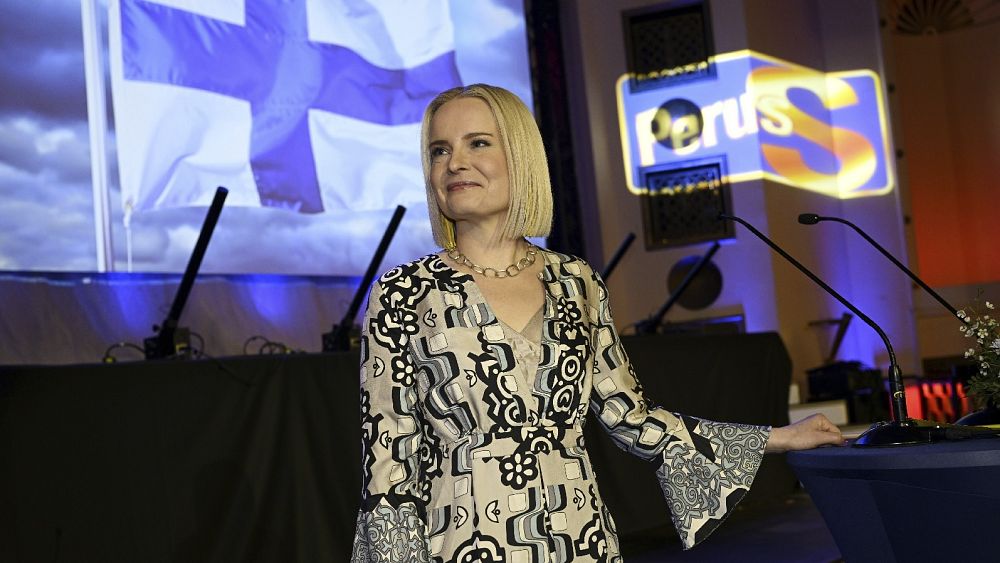World
Why the far-right is increasingly getting into power across Europe

Italy, Sweden and now Finland: Far-right parties in Europe have started to govern.
A shift is taking place little by little in Europe which could turn out to be a new political trend.
Previously on the margins of the political spectrum, far-right parties are now getting government roles alongside mainstream right-wing parties.
The latest case is in Finland where following three months of negotiations, the far-right nationalist party “the Finns” — which largely campaigned on an anti-immigration and anti-European Union agenda — became a member of the coalition government over the weekend.
Such parties are also participating or leading governments in Italy and Sweden, while in Spain the conservative People’s Party (PP) struck a series of coalition deals at regional and local level with the radical right Vox party, providing a possible blueprint for next month’s general election which they are tipped to win.
Extremely conservative parties have meanwhile been in power for years in Hungary and Poland.
Disillusionment with conventional parties
Analysts say that the reasons behind this trend vary from country to country, with immigration, the economy or the war in Ukraine among the drivers for the shift.
“In some countries, this is very strongly related —in many by the way, not only in those countries where they then assume a leadership role in government or a role in government — with the issue of migration,” Janis Emmanouilidis, deputy chief executive of the European Policy Centre, a Brussels-based think tank, said.
“In other countries, it is a way of showing the yellow or the red card to mainstream parties for issues related to the economy, with issues related to fears of people having with respect to transformation processes, which is happening in front of their eyes,” he added.
For Cathrine Thorleifsson, an associate professor at the University of Oslo and the head of the Norwegian Government’s Commission on Extremism, this trend is not new. She explained to Euronews that these different parties have been increasing their electoral support for the past decade.
For her, immigration and Euroscepticism are the main drivers.
“Lots of voters are quite disillusioned with ordinary conventional political parties. And we seem to be in a new globalised crisis,” she told Euronews.
“First, you had the financial crisis, the pandemic, (the) economic fallout of the war in Ukraine and (the) cost of living crisis. And in times of crisis, some of these populist right parties, they do find quite simple solutions to these very complicated problems and promising to protect the people and also sovereignty against the perceived and real threats from the outside,” she said.
The way people feel in times of crisis has historically been the same, she explained.
“Very often also religion is being emphasised. In the case of Spain now it’s an appeal to traditional values and way of life. It’s an appeal to Catholicism. And it’s also really in all countries a veiled threat to liberal values associated with liberal democracy and the EU,” she said.
European elections ahead
As next year’s European elections loom, new political alignments could be formed.
The main parties — the conservative European People’s Party, the liberals from Renew, and social democrats of the S&D — are likely to emerge weakened, according to recent polls.
The recent open “flirt” between the EPP and the more right-wing European Conservatives and Reformists Group (ECR), notably on environmental issues, has raised concerns over policy-making after 2024.
“A stronger election result for extreme forces will push the mainstream in a certain direction, will put it under pressure. Will that lead then, to the end of the EU? This is not, I think, what is on the cards, but it could make things more difficult at the European level,” Emmanoulidis said.
But, he nonetheless stressed that “this (is) happening at a time where actually you need a higher level of ambition with respect to the EU’s response to the many challenges we are facing, to the many transformational challenges we’re facing, whether it has to do with geopolitics —just look at Ukraine and the international order —, look into the green transformation, look into digital transformation”.
Spain will hold snap elections on 23 July, and analysts suggest that its result will play a key role in determining the future orientation of the EPP.
For Thorleifsson, this trend is here to stay and could have real implications for liberal democracy as it grows.
“The real threat is, of course, to democracy itself and see how democracies in our time, they do die quite slowly by democratically elected authoritarian leaders,” she said.
“Let’s take Hungary as an example, where there’s been a gradual shift from open democracy to more authoritarian rule, where you also see that minority rights are jeopardized and also judiciary independence and the checks and balances of power. And often you will have conventional conservative parties forming coalitions with populist parties, but they do not manage to tame them. So what you see is a net change in both ideology and rhetoric and in policy, which has real implications for democracy and human rights,” she added.
Meanwhile in Germany, the far-right Alternative for Germany (AfD) is also polling high with calls to stop migration and targeting the government’s green agenda, while in France, the far-right remains among the key political players of the country.